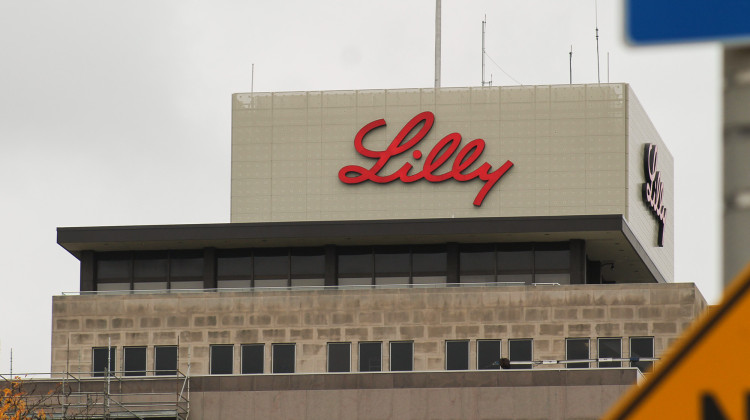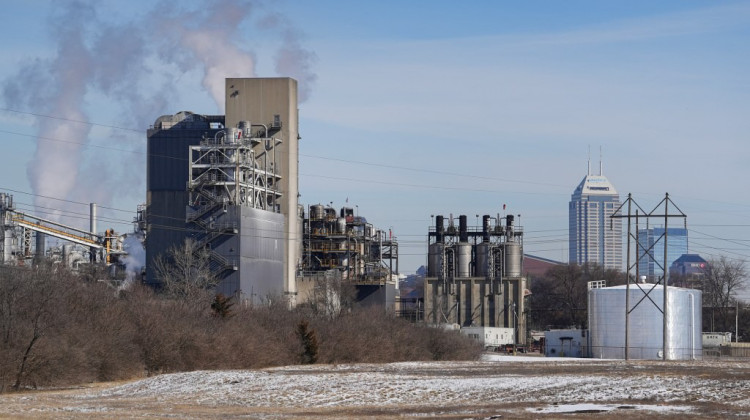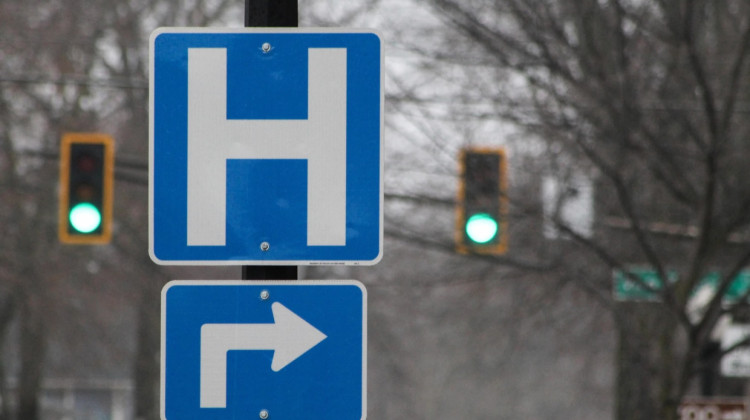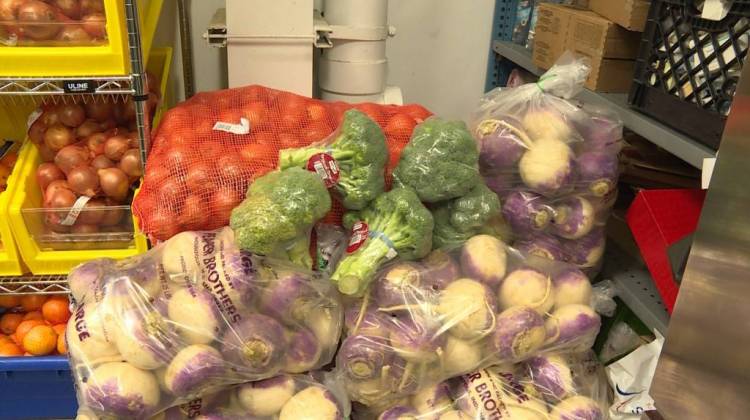
Eli Lilly is likely exempt from new 100% tariffs expected to take effect on drugs manufactured outside of the U.S.
File photo / WFYIPresident Donald Trump announced a 100% tariff on pharmaceutical drugs manufactured outside of the United States, set to take effect on October 1.
Indianapolis manufacturer Eli Lilly appears to be exempt from the order.
In his post on social media, President Trump said the 100% tariff would not be placed on companies either breaking ground or currently constructing a manufacturing plant in the U.S.
Eli Lilly has announced two new facilities in recent weeks — one in Houston, Texas and one in Richmond, Virginia — part of a broader $50 million pledge to invest in U.S. manufacturing earlier this year.
Carla Cox, director of global communications at Lilly, said the investment was not related to tariffs proposed by the Trump administration, noting that their "manufacturing strategic plan is managed many years out."
Cox added that the company opposed tariffs because they "ultimately increase the costs of medicines, which have historically been excluded from international tariffs because of their life-saving nature and impact on patients."
Other organizations, including the American Hospital Association, have called on Trump to maintain exemptions for tariffs on pharmaceuticals.
"The supply chain for pharmaceutical products is highly complex and requires hospitals to draw on both domestic and international sources," the Association wrote in a statement. "For many patients, even a temporary disruption in their access to these needed medications could put them at significant risk."
Mina Tadrous is an associate professor at the University of Toronto who studies drug policies and the impact of tariffs. He said it's unclear how the tariff will even work.
"What counts as pharmaceuticals, and how is this going to be enacted? Because I think that helps [drug manufacturers] make certain decisions," Tadrous said.
Tadrous said it's not clear, for example, whether the tariff would be enacted on finished pharmaceutical drugs or on individual active ingredients.
Generic drugs do not appear to be impacted by the President's proposed tariff order, and Tadrous said it's unclear what some of the bigger pharmaceutical companies might do.
He said the sticker price for branded drugs in the U.S. is significantly higher than the cost of producing them, which may allow companies to simply absorb the cost of the tariffs without any change to how those drugs are priced.
"I think brand names are more likely to absorb some of these costs in a lot of different ways, because when you look at their pricing structure, the cost of producing the drug is not where the price comes from," Tadrous said.
Contact Health Reporter Benjamin Thorp at bthorp@wfyi.org.
 DONATE
DONATE






 Support WFYI. We can't do it without you.
Support WFYI. We can't do it without you.